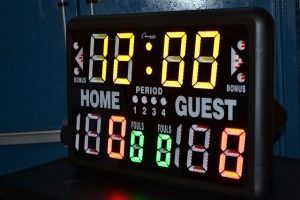Are you writing a thrilling novel full of suspense, action, and edge-of-your-seat excitement? If so, including numbers correctly is essential for your narrative to be read with ease.
While the technical rules may seem complex, here’s the good news—once you understand them they can be implemented quickly and easily!
This blog post will discuss these guidelines in depth so that you can confidently write out your story while presenting accurate numerical facts.
Defining the rules of when to write out numbers

When it comes to writing out numbers, there are a few key rules you should keep in mind. Having a clear understanding of when and how to write out numbers can help make your work look neat, organized, and professional.
When to write out numbers depends on several factors
– If the number is below 10, you should spell it out.
– Any number between 10 and 999 should be written as numerals.
– For any number above or equal to 1,000, the comma can be used in writing it out.
For example, five hundred fifteen would be written as 515, and two thousand would be written as 2,000.
When to write numbers vs words
1–9: Spell out in words
10–999: Use numerals
1000+: Use numerals with commas
Decimals and fractions should always be written out using numbers (e.g., 0.5, 1/2).
When writing percentages, use the numbers with the % sign.
In some cases, such as when writing about money, you should always use numerals (e.g., $10). There is no need to use a decimal point or a dollar sign for amounts less than one dollar. Instead, spell out the amount. For example, The stickers were only 50 cents.
Exceptions to the Rules for writing numbers
There are a few exceptions to the rules for when to write out numbers:
– For fractions less than one, spell out the word “one” (e.g., one-third, one-fourth).
– For rounded numbers, you can use either numerals or words to express them (e.g., five or 5).
When to spell out whole numbers in a thriller novel
– Spell out whole numbers in a thriller novel when they are related to specific characters or objects. For example, “She had three cats” or “He drove seven miles.”
– When starting a sentence with a number, spell it out unless the number is large (e.g., over 999). If it is a compound number it should always be hyphenated. For example, Ninety-nine people were crammed into the room.
How many digits can you get away with writing out in your story?
It is generally recommended to use numerals for numbers with three or more digits (e.g., 2,000). If you are writing a shorter story or novel, it is best to spell out all numbers below 10 in order to maintain the flow of your sentences.
Adding suspense by using single-digit versus double-digit numbers

Using single-digit numbers (e.g., three, five) can be effective for creating suspense in a thriller novel. This is because these numbers evoke an immediate emotional response from the reader and draw them into the story quickly. Double-digit numbers (e.g., 12, 50) can also create suspense but are typically not as intense since they lack the same immediate impact.
Example of how to create suspense by using single-digit and double-digit numbers:
A great movie that uses single-digit and double-digit numbers to increase suspense and urgency is James Bond’s Skyfall. As Bond enters an underground lair to battle Raoul Silva, 007 soon finds himself positioned above three triggered bombs that are counting down towards detonation with two single digits: 3..2..1… In just three seconds, everything will be destroyed – unless Bond does something fast! These single digits provide us with real stakes – pushing Bond forward in finding a solution before time runs out.
Example of how combining numerals and words has an effect on the interaction between characters:
Combining numerals with words can be used effectively for comedic effect such as when two people are arguing verbally over something trivial. Usually, the argument revolves around who was wronged more than anyone else – five times versus seven times etcetera! We even see this type of linguistic manipulation used frequently within films such as Star Wars where one character may boast that he has trusted another character “thirty-seven times” which emphasizes how far back their relationship goes without excessive exposition being necessary!
Writing large or small numbers in a compelling way

When writing large numbers, use numerals and commas (e.g., 10,000). Smaller numbers can be expressed as words or numerals depending on the context of the story. When spelling out small numbers, consider using an alternative word to “one” (e.g., single, sole) for added suspense.
Key takeaways
– When numbers are below 10, spell them out. – Use numerals for numbers between 10 and 999, and commas with those over 1,000. – For fractions less than one, spell out the word “one”. – When writing exact amounts of money, always use numerals. – Spell out whole numbers when they are related to specific characters or objects. – Use single-digit numbers to create suspense in a thriller novel. – Consider using an alternative word for “one” when spelling out small numbers to add suspense.
Utilizing numerals and words together for maximum impact in thrillers
When writing a thriller novel, you can use numbers and words together to create suspense and excitement. Consider using combined elements such as “five hundred” or “twenty-one thousand” which will give readers more information while still maintaining the flow of your story.
Conclusion
Writing out numbers can be an immensely powerful tool when used correctly in a thriller novel. By gaining an understanding of when to write out numbers, you can impart suspense and urgency in your story that will draw readers in. When writing single-digit and double-digit numbers, try to make sure that their appearance has a purpose—it’s not enough to simply throw them into the mix without thought!
And don’t forget to play around with combining numerals and words together; this hybrid approach is incredibly effective for adding extra effect to the interaction between characters. Above all else, writing numbers should always be approached with sensitivity—after all, when we write stories, our readers feel as if they are inside of them. Give your readers something exciting to remember!
Thank you for taking the time to read. May you find success and joy in all that you create.
If you’re working on your first novel and are looking for more help with your writing, please check out my other articles at https://ullahakanson.com/blog/
Best of luck with your writing!
Ulla
www.ullahakanson.com

